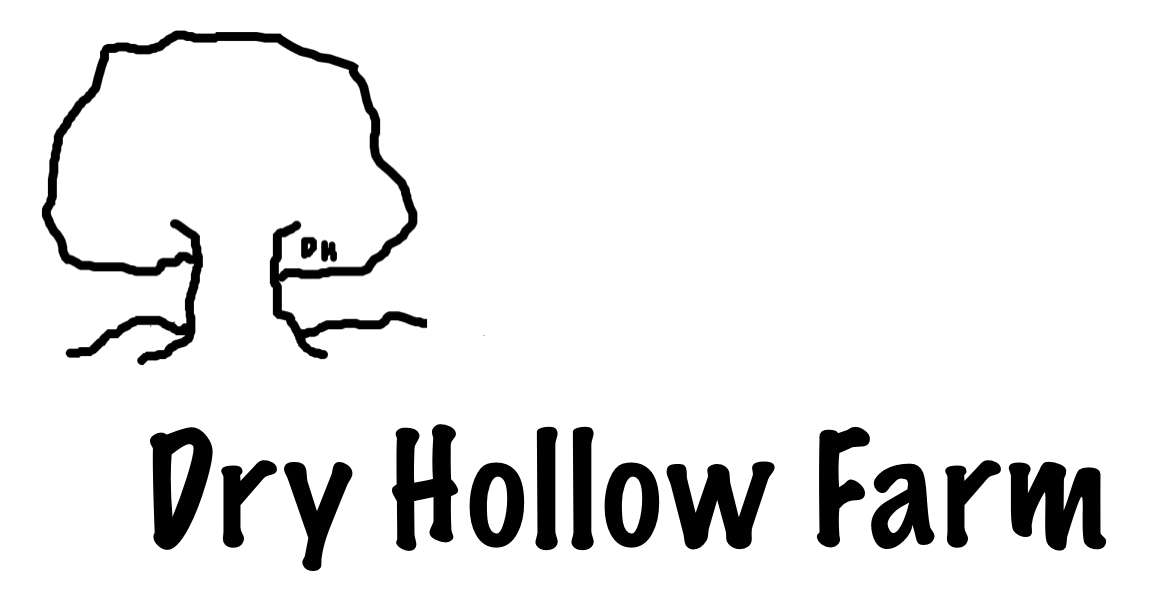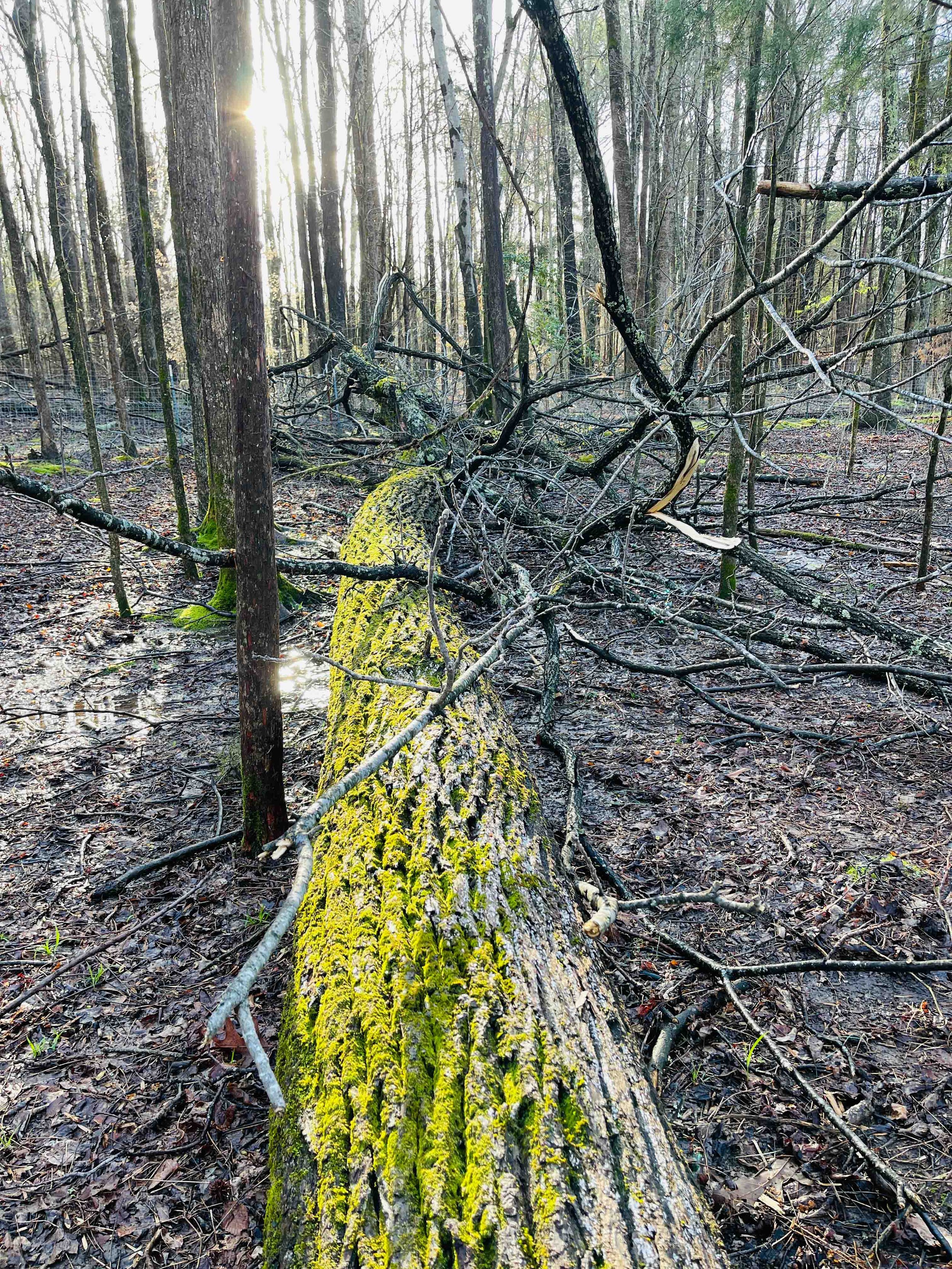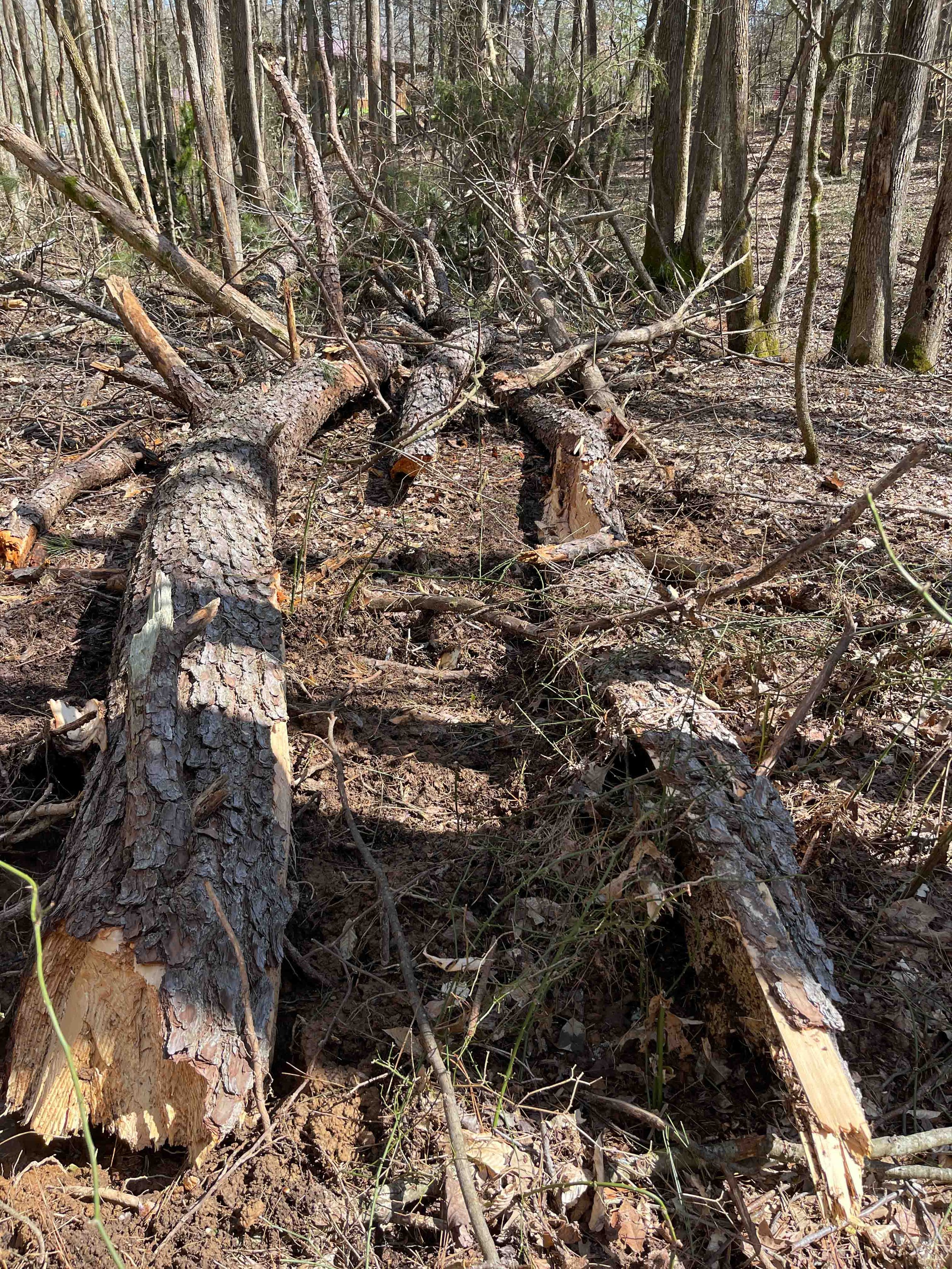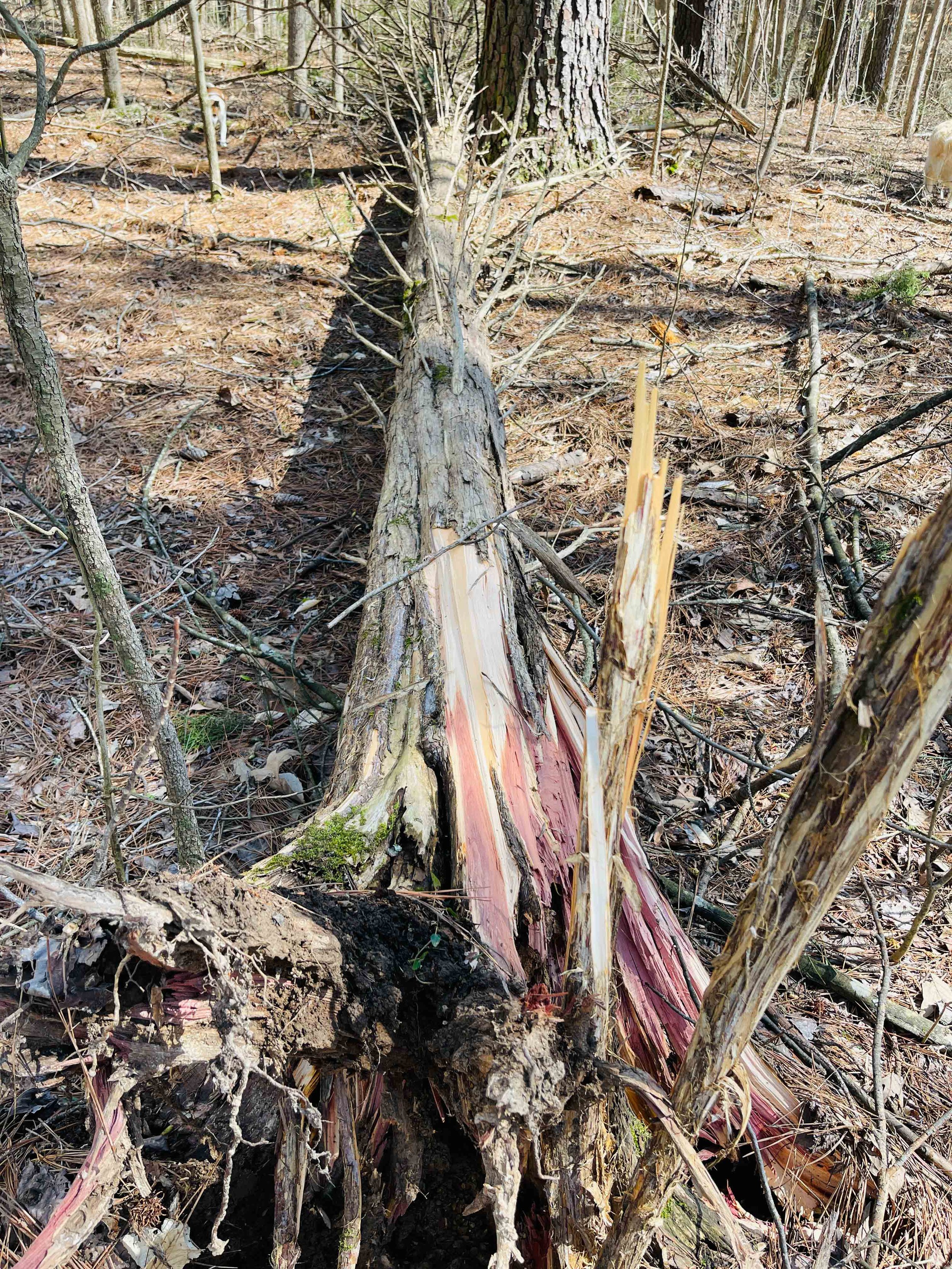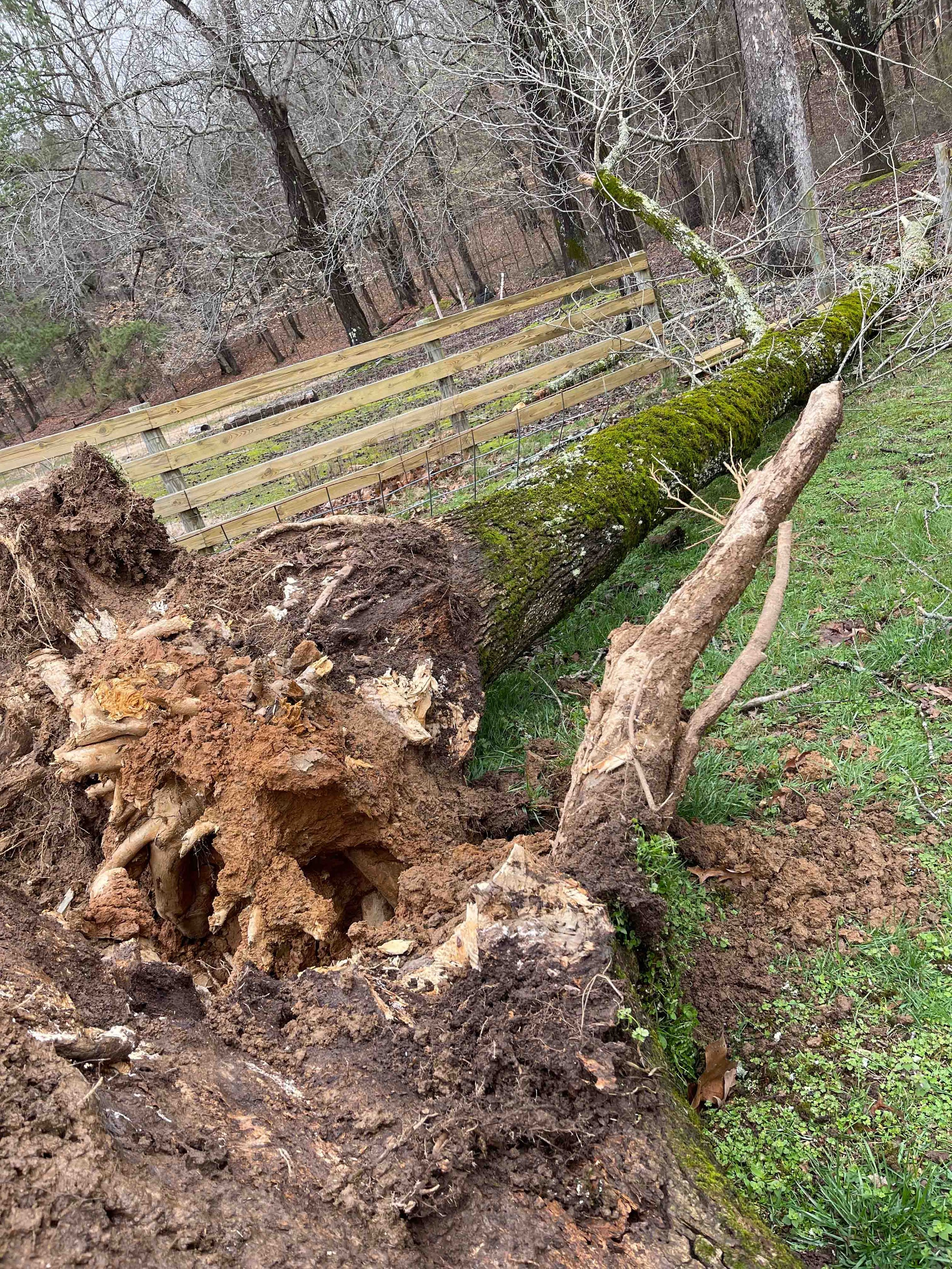The Threat of Trees
We maintain over two miles of fencing at Dry Hollow Farm. Although we have many acres of open pasture, we also offer a variety of wooded paddocks for our goats who often prefer briars and leaves and saplings to pasture grass. For this reason, trees border much of our fencing. This means we must walk our fence line after every passing thunderstorm.
Storm fronts with damaging straight-line winds were especially prevalent this spring, bringing down some of our largest trees in forested areas. One wind event in particular dropped a cluster of a dozen cedar and pine trees deep in the woods, plus pushed a large oak across three separate sections of fence (which we have yet to repair, I might add!).
Another storm split a double-oak that crashed through a board fence lined with mesh wire at the front of the property. The bulk of our sheep herd braved the stormy gale as they waited anxiously to access their new path to freedom. As the winds howled around us and large limbs dropped inches from our heads, we dragged fencing panels into place to create a temporary barrier until we could create a more permanent fix.
Our livestock enjoy the wooded pastures and often choose to bed down in piles of leaves and pine needles if weather allows. For healthy goat rumens and guts, the variety of comestibles found within wooded areas are extremely valuable. Their browsing also clears out these wooded areas and allows the larger trees to flourish.
However, maintaining fence through wooded areas requires constant vigilance. We keep a stockpile of fencing pieces, staples, ties, and t-posts on hand for emergency fixes and eventual repair. Plus a good, working chainsaw for removing trunks and limbs!
Trees are beautiful, but messy. Every tree eventually falls, and usually they fall exactly where you’d prefer they did not.
One advantage? A fallen tree makes a great goat playground, especially for the kiddos!
Dr. Kathryn Bush owns and operates Dry Hollow Farm, a working goat and sheep farm in Huntingdon, Tennessee. Together with her husband, Russell, she creates skincare products from their fresh goat milk, grows organic herbs, welcomes visitors to their two cabins on the farm (available for stays through Airbnb), keeps the farm’s on-site soap shop stocked with their handcrafted products, and enjoys working the farm in company with their Great Pyrenees dogs (who work hard guarding the animals). Check out their natural products featuring farm-grown ingredients here, and sign up for the Dry Hollow Farm newsletter to stay in touch and be the first to hear about farm news, events, and new products.
